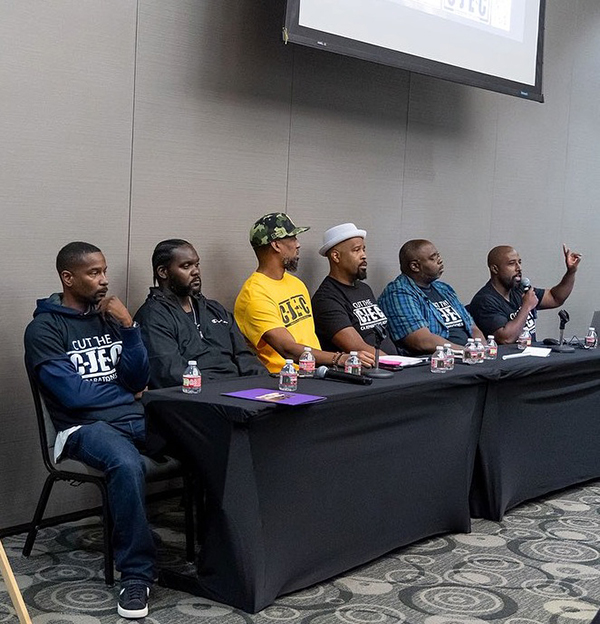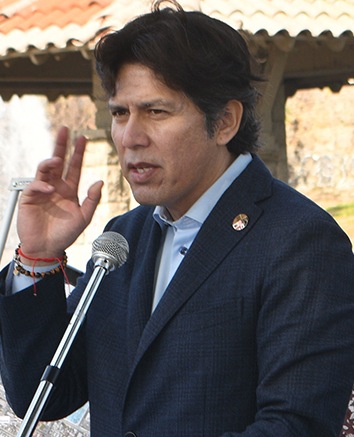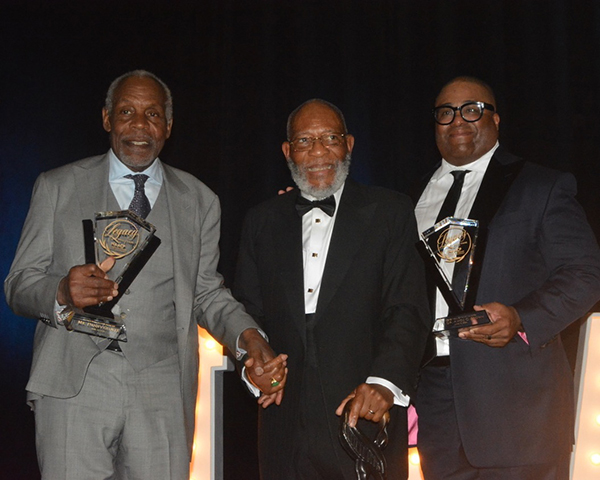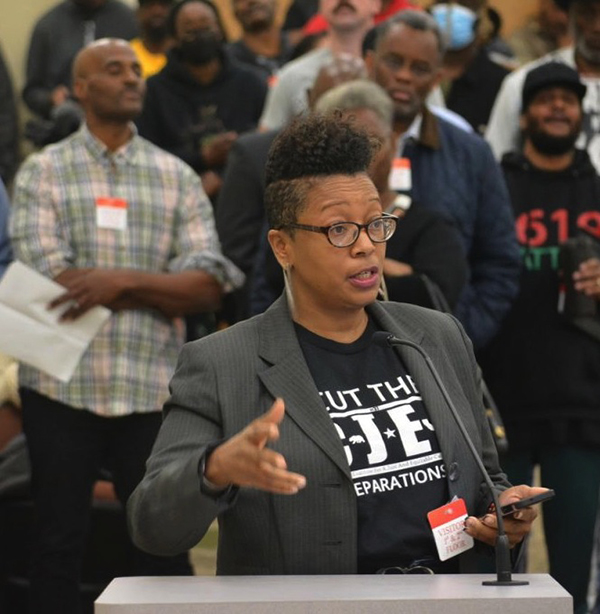By Shirley Hawkins
Contributing Writer
CARSON — Sometime next year, the California Legislature is expected to act on a report submitted by the Task Force to Study and Develop Reparation Proposals for African Americans.
The task force completed its report, which totaled more than 1,000 pages, to the Legislature in June. The report included more than 200 recommendations for how to undo centuries of unfair treatment for Black Californians, especially descendants of enslaved people. It recommended that California formally apologize for its role in enabling slavery and for the many tentacles of white supremacy in its history.
What was in the report and what Black Californians anxious for reparations for slavery and its ramifications can expect from the Legislature was the topic of a panel discussion recently at Cal State Dominguez Hills as part of the KJLH Men’s Empowerment Summit of 2023.
The panel, which was moderated by Natalie Champion, project manager at the California Black Women’s Health Project; included the Rev. Hozell Francis II, Chad Brown, Marcus Champion, Kieran Smith, Josiah Williams and Chris Lodgson.
“All of the brothers on this panel are family men, hard workers and caregivers, but most notably, they are leaders who are on the front lines,” Natalie Champion said.
“When we talk about reparations, we are talking about repairing human rights violations,” Kieron Smith said. “We are talking about repaying and repairing a particular community of survivors and descendants who have experienced human rights violations.”
“Some of us were convinced that California didn’t have slavery but that’s not true,” he added. “There were thousands of Blacks and African Americans who were enslaved right here in the state of California. Nearly 80% of California’s 2.8 million Black residents would be eligible for reparations.”
Smith said that according to the task force’s recommendations, reparations will be available to anyone who is a descendant of an enslaved or free Black person who was living in the United States before the year 1900.
“Everyone needs to be a California resident for at least six months at any time between the years of 1850 and 2020,” he added.
Another panelist, Chad Brown, said all Blacks should care about reparations.
“If you care about yourself, if you care about your family, if you care about your community, you need to care about reparations,” he said.
“There’s about $120 trillion of household wealth in this country,” Watson said. “[Blacks] comprise about 14% of the population but we own less than 3% of that wealth. There isn’t enough money to go around for the 40 or 50 million (Black people) that are here.”
Watson said he was incredulous after reading statistics about the gap between the Black and white standard of living.
“If you’ve been to college, married, have a job and a home, you’re doing what you’re supposed to be doing,” he said. “But if you’re like me, you’re still struggling. Let’s start with college.
“Black household heads with a college degree make $22,000 less wealth than white household heads who lack a high school diploma,” he said. “We need to understand the numbers. We sit around and we think that individually because we’re doing all right that we’re good. But you’re not good because the collective isn’t good.
“They tell you when you get married, that is where you are going to start building your wealth, you and your wife. But what we find is that for Black families, it doesn’t translate into wealth for us,” he added. “We’ve all been robbed of generational wealth. They owe you.”
Another panelist, Marcus Champion, said: “I’m going to talk about what we deserve and what we are owed. We’re owed a stable community. We’re owed a community where we don’t have to drive five or 10 miles to go to a quality grocery store.
“We’re owed the right to live in a stable community. We’re supposed to be able to wake up and breathe easily. My wife and I have three daughters, a 2 year old and two 6 year olds. My children have to stay in the back yard because of where I live and what goes on. I can’t walk my kids around the neighborhood or down the street because of what goes down where I live.
“I deserve to be able to go out and go for a jog if I want to. I deserve to be able to walk around with my kids and play soccer if we want to. So when it comes to reparations, this is the balance.
“Start thinking of reparations as what you’re owed,” Champion added. “No handouts, no pipe dreams, this is real, it’s happening and it is not a handout. Reparations are what we are owed. “It’s not over until it’s done.
There is no timetable for the Legislature to act on reparations. State Sen. Steve Bradford, D-Gardena, who served on the reparations task force, is expected to introduce reparations legislation shortly after the Legislature convenes next January.
The bill will then go through the committee process in both the Assembly and state Senate, where it will face hearings and proposed amendments. Eventually, both the Assembly and Senate will vote on the legislation. If approved, it will be forwarded to the desk of Gov. Gavin Newsom.
This will all take place during an election year when all 80 Assembly seat and 20 of the 40 Senate seats are up for election.
“I need everybody here to stay plugged in so that when that happens, you can call in [to your senator or Assembly representative] and do your part because whatever you do will help us get across the finish line,” Marcus Champion added.
Shirley Hawkins is a freelance reporter for Wave Newspapers. She can be reached at metropressnews.com.













